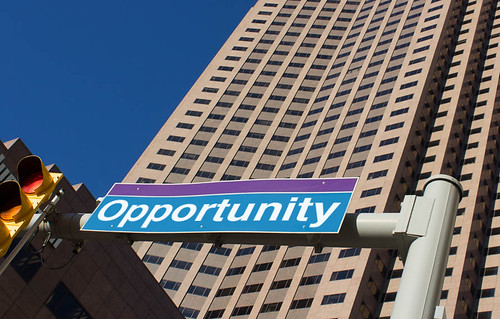Digital technology is such an integral part of our lives today that it's easy to forget how things were before the revolution. Unlike many of my colleagues I was completely uninterested in computers until the internet came along. Pre-1990 computers were simply more trouble than they were worth and I couldn't see any advantage in learning how to use them. But once I discovered www I was converted; suddenly the world opened up!
The fact that a large section of the population doesn't know what life was like before the digital revolution is captured in a post on Quartz, What it feels like to be the last generation to remember life before the internet. The article reviews a new book by Michael Harris called The End of Absence: Reclaiming What We’ve Lost in a World of Constant Connection. It's very popular for my generation to be skeptical or even dismissive of today's digital deluge but Harris avoids such sweeping generalisations and instead reflects on how his own behaviour has changed over the years, especially in terms of being always connected. We have become addicted to connection and terrified of missing something.
“When you wake up, you have this gift of a blank brain. You could fill it with anything. But for most of us, we have this kind of panic. Instead of wondering what should I do, we wonder what did I miss. It’s almost like our unconsciousness is a kind of failure and we can’t believe we’ve been offline for eight hours,” he says. It is habits like this that are insidious, not the internet itself. It is a personal thing.
I think we can all identify with the feeling of being a slave to our updates and feeds. They provide us with recognition, approval, belonging and those are extremely powerful motivators. Harris recommends spending a month on digital detox as a way of reflecting on your digital identity, something I haven't tried and suspect I would find extremely hard to achieve unless I combined it with a holiday in some remote part of the world.
But let's think back to the "good old days". How did we communicate then? Today I can keep in touch with hundreds of friends and colleagues on social media to the extent that when I do meet one of them in person I can immediately ask them about their daughter's recent wedding or their new job. I know contacts on Facebook are fairly superficial but for 90% of my connections the alternative is no contact whatsoever. I remember when I first moved to Sweden in 1983 I spent many hours a week writing, with pen and paper, very similar letters to friends and relatives in the UK. Without a photocopier I simply had to write the same thing again and again! This was very time consuming but was quite simply the only way I could keep these relationships going. Phone calls were extremely expensive and generally carried out in draughty phone boxes that had an insatiable appetite for coins.
Keeping in touch with the latest news was tricky until I had learnt Swedish. English language newspapers were available but tended to be at least two days old and tuning in to crackling radio broadcasts from the BBC World Service wasn't so uplifting either. The idea that I could write my own reflections, publish them myself and gain a worldwide audience (i.e. this blog) was beyond my wildest imagination. My music collection was not portable until the Sony Walkman came along and so all those hours spent waiting for buses and trains as well as the actual journeys were spent in bored silence unless I had a newspaper or book with me.
I visited many interesting places on holiday and would normally take one 36-exposure film for my camera. Developing them was pretty expensive so my memories of these days are now only a handful of decent photos (generally up to half of the photos I took were terrible!). It never occurred to me that I should take a photo of myself sometimes and the result is that I have almost no photos of myself between 18-30 years old, a period that is now seen as prime selfie time.
At work my network was pretty well restricted to the people who worked in the same office plus a few other contacts who I met now and again. When I was not in the office I was simply not available. Messages could be left with the switchboard operator or sent by post. If I needed an answer, however simple, and the person responsible was away on business or holiday I would simply have to try again next week. Collaboration with people in other cities or countries was unthinkable.
Of course our digital world has lead to a magnification of many negative human traits such as hatred, bullying, fraud and narcissism but at the same time has also enabled us to connect with people from all over the world, work together on projects that would have previously been impossible, share our ideas, learn more about other cultures and get a far broader perspective on the world than ever before. Both sides of the coin co-exist though of course we must work harder to promote the positive side. Digital technology is an enabler and the choice of how we use it is ours.



